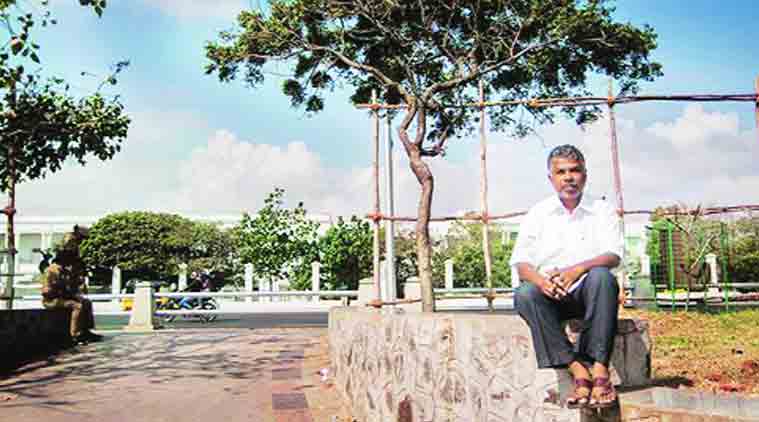Death Comes as the End
A look at Tamil writer Perumal Murugan’s career and the controversy around his novel Mathorubagan
 Perumal Murugan’s fictional world is his neighbourhood. The village he grew up in, the town where he now stays, the community life and traditions he has been part of provide him the raw material to craft his works. The rootedness gave his works a robust authenticity and marked him out as a chronicler of lives, present and past. His six novels, scores of short fiction and non-fiction held up a mirror to the society he knew well.
Perumal Murugan’s fictional world is his neighbourhood. The village he grew up in, the town where he now stays, the community life and traditions he has been part of provide him the raw material to craft his works. The rootedness gave his works a robust authenticity and marked him out as a chronicler of lives, present and past. His six novels, scores of short fiction and non-fiction held up a mirror to the society he knew well.
It is, in fact, his honest and grounded appraisals of our times that has pitted him against vested interests in his own town, Namakkal in Tamil Nadu. Fully committed to his craft and readers, not to caste and community pride, he dug out stories of oppression embedded in the manufactured histories of the community’s past. When the conservative sections of the society turned against him and the state and the political class refused to stand by him, he chose to quit writing. The announcement marking the death of Perumal Murugan earlier this week was an act of protest and a gesture against a world that failed to recognise the worth of his works. It was Murugan’s way of standing by his truth.
The campaign against Mathorubagan (One Part Woman) five years after its publication was instigated by local caste leaders associated with Hindutva organisations in December. They picked on an episode in the novel where a Gounder woman (the community to which Murugan also belongs), frequently pulled down by friends and family members for failing to become a mother, decides to participate in a temple ritual that allows childless married women to choose a stranger as partner for a night to beget a child. This ritual, similar to Kunti’s story in Mahabharata, had ceased to be practised long ago in Thiruchengode.
However, the critics refused to acknowledge that Mathorubagan is a period novel. A hate campaign was instigated against him by campaigners who distributed selected parts of the novel to make the case that the writer was insulting the women of the community and the local deity. Forced to retract the novel, Murugan,48, chose to withdraw all his works from the public domain. Here, we take a look at the themes of his novels:
Eru Veyyil (Rising Heat, 1991 )
When a peasant family is forced to sell off their land to make way for a housing colony, things fall apart. Told from the perspective of the youngest son, it is a study of human relationships when poverty and greed face each other and there is no place left to call home.
Nizhal Mutram (Current Show, 1993)
In the 1970s, as a young boy, Murugan helped his father run a soda stall in a movie hall in Thiruchengodu. Based on his own experiences, he wrote a novel about Sathi, a teenage boy who sells soda at the cinema theatre.
Koolamadari (Seasons of the Palm, 2000)
Koolaiyan, a young goatherd from the Chakkili caste, must work in a Gounder home to repay a loan taken by his invalid father. What could have been an idyllic childhood is overshadowed by the burden of his task. A tour de force, it is one of his most original works to date.
Kanganam (Resolve, 2008)
At 32, Marimuthu is still unmarried and not for lack of trying. He resolves to marry in the next six months but finds very little support in his family, except from his cousin Selvaraj, and Raman, a classmate from school.
Mathorubagan (One Part Woman, 2010)
In a society where masculinity is measured by the ability to procreate and the identity of a woman manifests itself in motherhood, the barbs of those around them begin to chisel away at the togetherness of a couple, Kali and Ponna.
Aalandap Patchi (The Misanthropic Bird, 2013)
When a young farmer, Muthu, is forced out of his share of the family land by his brother, he looks to move to a neighbouring area with his family and rebuild his life. But the world outside revels in apathy. What remains is the soil beneath his feet and that too is known for playing a dirty trick or two.
- 01
- 02
- 03
- 04
- 05



























